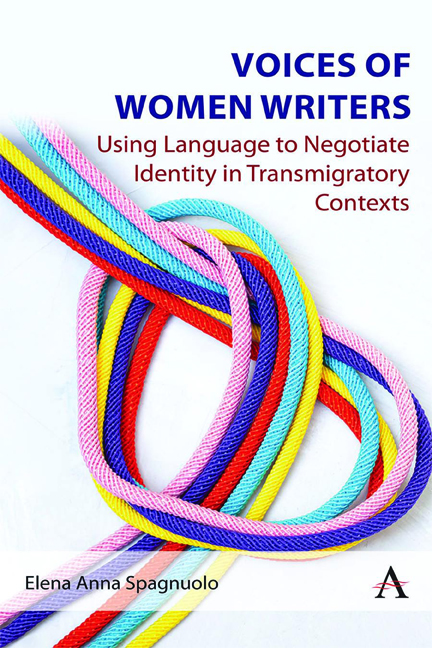Book contents
- Frontmatter
- Contents
- Introduction
- 1 Revoicing Female Migrant Identities through Creative Multilingualism
- 2 Gianna Patriarca: Self-Translating as a Strategy of Re-grounding
- 3 Dôre Michelut: Coming to Terms with the Mother Tongue
- 4 Licia Canton: Rewriting the Italian Mother (Tongue, Land)’s Legacy in Self-Translation
- 5 Francesca Duranti: ‘Trans-Writing’ the Self through Acts
- Conclusion
- References
5 - Francesca Duranti: ‘Trans-Writing’ the Self through Acts
Published online by Cambridge University Press: 01 March 2024
- Frontmatter
- Contents
- Introduction
- 1 Revoicing Female Migrant Identities through Creative Multilingualism
- 2 Gianna Patriarca: Self-Translating as a Strategy of Re-grounding
- 3 Dôre Michelut: Coming to Terms with the Mother Tongue
- 4 Licia Canton: Rewriting the Italian Mother (Tongue, Land)’s Legacy in Self-Translation
- 5 Francesca Duranti: ‘Trans-Writing’ the Self through Acts
- Conclusion
- References
Summary
The Link between Author, Character and Narrator in the Autofictional Novel
Francesca Duranti is the pseudonym of Maria Francesca Rossi. She is a popular Italian writer who has published fourteen books, such as La casa sul lago della luna (1984), Come quando fuori piove (2006) and Un anno senza canzoni (2009). She has won several literary prizes, such as the famous Premio Campiello, or Premio letterario nazionale per la donna scrittrice. She is also well-known abroad, and her novels have been translated into eighteen languages. Her books explore the connection between life and art, illustrating fiction as a reflection of life and vice versa. For instance, in Effetti personali (1988), the protagonist Valentina is a translator who looks for ‘her self’ through writing and translating. Her lack of ‘personal effects’ becomes clear to Valentina when, in leaving her, her husband removes the name plate from the front door of what used to be their apartment. This moment marks the beginning of her quest, as she embarks on a professional journey, which is nonetheless deeply connected to a personal need and purpose. In Un anno senza canzoni, the protagonist is a young girl; in the background, Duranti depicts a solitary and empty Milan, abandoned by people on holidays. Alone in her room, the young girl starts writing a diary in order to reflect on her life. In this novel as well, the exploration into life is therefore interwoven with the act of writing, which Duranti sees as two different yet indissoluble moments of one's existence. The stratagem of the diary makes this interconnection even stronger, as the girl is literally transposing her life into a narration. Alongside her career as a writer, Duranti is a prolific translator who has also engaged herself in an experiment of self-translation. This unique episode in her literary career will be the focus of this chapter, which investigates the bond between living, writing and self-translating in Sogni mancini/Left-Handed Dreams.
Duranti was born into a rich Italian family, where she grew up bilingual and learned, simultaneously, to speak Italian and German. Moreover, as a child, she also learned English and French (Dagnino 2021). This means that she grew up ‘with two or more languages from the beginning’ and never knew ‘a purely monolingual state’ (Yildiz 2012, 121).
- Type
- Chapter
- Information
- Voices of Women WritersUsing Language to Negotiate Identity in (Trans)migratory Contexts, pp. 111 - 142Publisher: Anthem PressPrint publication year: 2023



